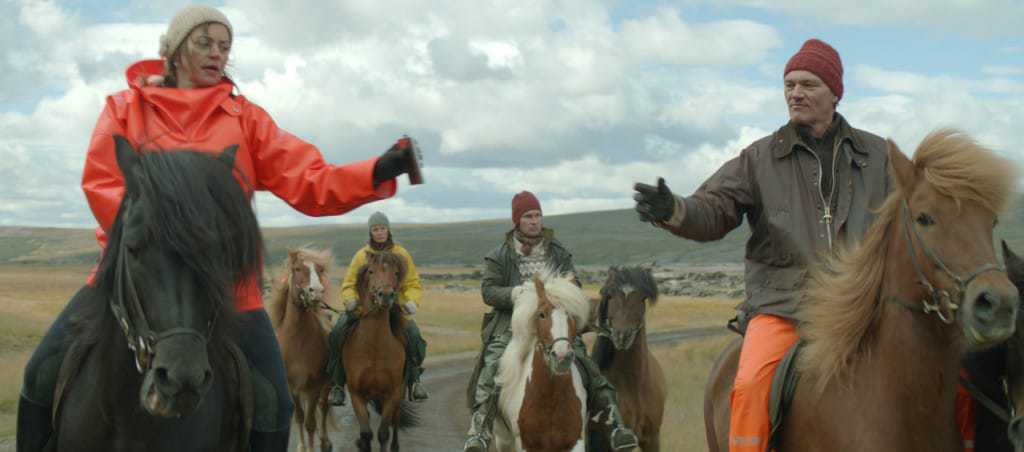Two of my SFIFF favourites, Of Horses and Men and Club Sandwich, have not been picked up for US distribution, but will screen once more at the festival. Catch them on the big screen while you can.
Of Horses and Men

This bizarre black comedy, about a community in the Icelandic countryside that loves its horses, is also one of the most visually stunning films of the festival. The film tells the stories of six horses and their owners, in a variety of absurd situations. In one tale, a man ambitiously and absurdly rides his horse through the water, into the middle of the sea, to purchase strong foreign liquor from a ship; the alcohol is so strong, drinking it kills him. In another story, a man cuts his neighbour’s new fence, which blocks a national path, losing an eye in the process with plenty of blood, and ends up being chased by the neighbour on a tractor, all to to great comedic effect all around.
First time writer-director Benedikt Erlingsson sets his absurd tales against a breathtaking background of ice-capped mountains, blue seas, and green-grey pastures. Each tale starts with a close-up on the horse at its center, their owners reflected in their eyes, as we await the next display of human foibles. There’s little dialogue, allowing us to marvel at the beauty of the setting and the absurdity of the human condition, set to music as eclectically used as in a Tarantino film. This is precisely the sort of film that you should see on the big screen.
Club Sandwich

Mexican writer-director Fernando Eimbcke’s tender and funny story of a fifteen-year-old boy, his mother, and the girl that comes between them, is a quietly observed, often laugh-out-loud film. Hector and his single-parent mother are on a beach vacation in the off-season, and the film begins by showing us how co-dependent and uncomfortably close they are to one another. There’s also sexual tension between them: they only touch to lather sunscreen on each other’s backs, almost afraid to otherwise. When Hector meets a beautiful sixteen-year-old girl also on vacation there, they embark on a tentative sexual and romantic relationship.
The young lovers don’t say much and spend much time sitting in awkward silence, inching closer together to touch. When Hector’s mother discovers them, Eimbcke’s gets a lot of comic mileage out of shots with the three of them lined up in frame, Hector sitting uncomfortably in the middle. His mother is jealous and reacts petulantly. It’s unfortunate though that the young couple don’t exchange many words because it makes their relationship less meaningful and appear to be largely the product of hormones. Yet the film suggests there may be something more at work — Hector craves attention from and closeness to someone other than his mother — but Eimbcke never really lets their connection develop into something deeper.

